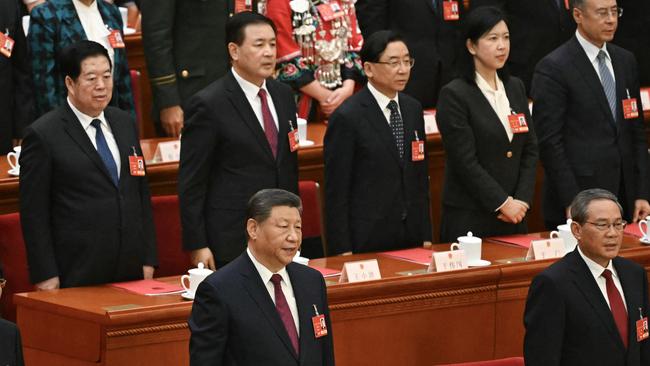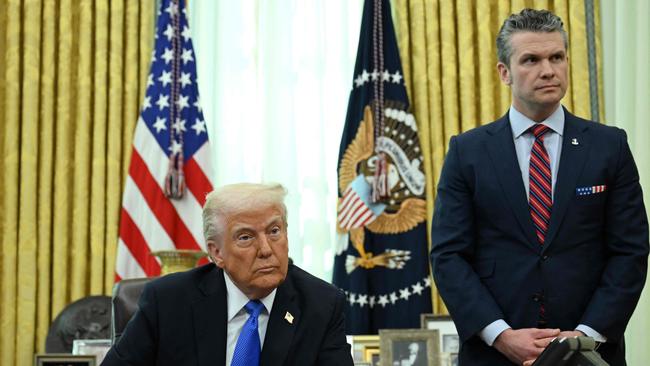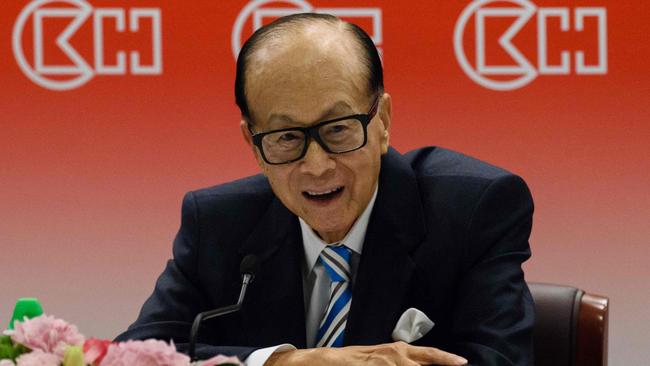
As the attention of the West remains riveted to the waterfall of deeds and words pouring from Donald Trump’s White House, the rulers in Beijing remain focused on their mission of making China great again.
China is using its fast-emerging hi-tech platforms and producers – including TikTok, DeepSeek, Temu, BYD, Shein and the rest – to occupy terrain formerly held chiefly by US or European-owned rivals.
Beijing is sending its rapidly expanding naval fleet out on voyages into our region to send a message about who now rules the waves and to test responses.
The recent circumnavigation of Australia by a flotilla of ships of the People’s Liberation Army Navy is just one example, to which Canberra’s response essentially has been: “Nothing much to see here.”
The Australian Strategic Policy Institute has just published new research examining how countries handle China’s “use of air and maritime coercion to enforce Beijing’s excessive claims … in the Indo-Pacific”, with Taiwan and The Philippines especially prominent targets, and non-Chinese ships increasingly challenged for traversing the South China Sea.
The ASPI report finds “while the US, Canada, France and the United Kingdom regularly publicise (such) challenges, Australia, Japan and New Zealand are among the countries that do not”.

China’s economy is being retooled to focus on “high-quality production”. Its former heavy emphasis on construction and infrastructure is now on a slow but relentless downward path.
Leader Xi Jinping constantly stresses: “Homes are for living in, not for speculation.”
But for decades this construction boom has driven Australian prosperity, with our sales of steelmaking commodities to China providing us with 20 per cent of our entire goods and services income. Our markets anxiously but increasingly forlornly scan Beijing announcements for any hint of a stimulus that may mean such happy days are here again. What export might replace that?
The agencies in Hong Kong that represent the People’s Republic of China recently have posted troubling commentaries published in local media that they effectively control.
These outbursts lambaste a draft arrangement by Hutchison, a company dominated by the family of famed 96-year-old Hong Kong entrepreneur Li Ka-shing, to sell for about $36bn its 43 port assets in 23 countries, including on the Panama Canal, to a consortium led by US investment giant BlackRock in a deal that appears designed to placate Trump’s rhetoric about seizing the canal.
Hong Kong chief executive John Lee, by no coincidence, condemned the “abusive use of coercion” in trade relations, hours before China’s Foreign Ministry issued a similarly worded attack on the deal.
This unprecedented attack on Li and on the autonomy of his business empire by Beijing officialdom, and by inference also by Beijing’s top Hong Kong official, must raise deep concern here in Australia because, previously, private Hong Kong corporations have stressed their independence from persuasion, let alone control, from Beijing.
And the PRC itself has boasted of the effectiveness of the “one country, two systems” formula that used to separate clearly the mainland communist system from Hong Kong’s.
Now that formula increasingly is negated as Hong Kong companies appear to be expected to check out major moves with Beijing, and to respond.

What does this mean for the Hong Kong-owned firms that have invested heavily in Australia, including in our key infrastructure? It would be misleading to conclude that these businesses, which virtually all provide helpful capital and efficient management, might be enlisted by Beijing in unfriendly ways any time soon.
But if even the great Li is now being expected to be more dependently “patriotic”, China’s own rulers have only themselves to blame if concerns develop in countries such as Australia that formerly have welcomed Hong Kong investments.
Finally, the advance of the Chinese Communist Party into supervising every corner of Chinese life is now being completed.
The United Front Work Department of the party’s Central Committee is becoming increasingly busy offshore, too, not only to “make the world safe for the party” but to go beyond that – to make the world hostile to critics of the party.
They have rightly and accurately – but unforgivably from the viewpoint of the new rulers installed in Hong Kong to bed down the draconian national security law – pointed out how in recent times the once-marvellous city sadly has journeyed from an open, rule-of-law jurisdiction towards becoming an authoritarian offshoot. In return for their comments, 20 months ago they effectively were branded by the Hong Kong regime as outlaws, with a $200,000 bounty placed on each, wild west style.
In recent weeks, letters have been sent anonymously from the Chinese territory of Macau to homes near where Melbourne lawyer Kevin Yam was believed to be living or working, urging Australian residents to claim the bounty by dobbing on them to the Hong Kong security agency or by “taking” them to Hong Kong or Australian police.
The nasty twist applied to Ted Hui in Adelaide is that similar letters were sent to mosques claiming wrongly that he has said: “I am a pro-Jewish man siding with Israel to wage wars against those Islamic terrorism” (sic).
Foreign Minister Penny Wong acted swiftly and commendably to support the lawyers, saying: “The Australian government does not accept other governments interfering with our citizens, making anybody feel unsafe.”
But overall we are living in an increasingly unsafe world, despite an election campaign approaching during which both major parties will seek to sway Chinese Australian voters by disciplined but bifurcated discourse that avoids criticising Beijing while still wishing to appear strong on defence.
Anthony Albanese said recently that “we fixed (the Chinese ban on Aussie lobsters) through diplomacy”. Maybe. But he took a giant step too far in claiming in the same radio interview: “China, we fixed the relationship.”
Wealthy cadres may be lunching again on our lobsters, but many more central challenges remain on the table.
Rowan Callick is an industry fellow at Griffith University’s Asia Institute and an expert associate at the Australian National University’s National Security College.





